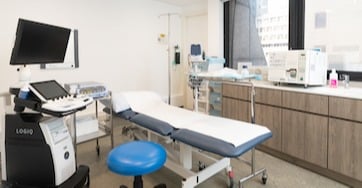It’s a fact of life. Your body functions decline as you get older. And for each decade, you’re more likely to develop some health condition or disease.
That doesn’t mean you should only go for specific body checks when you’re already inflicted or reaching a certain age. The more body checks you go for throughout your life, the more likely you are to have the means to prevent chronic health conditions, and to manage better those you may already have.
The most crucial aspect to consider when considering going for a body check in Hong Kong, is that medical care should not be a one-size-fits-all strategy. A test your friend or colleague goes for may not be suitable for you, and your body checks should be largely dictated by your age, your medical and family history and your health.
Instead of avoiding body checks with your doctor, or getting the wrong information from a friend, colleague or family member, here’s a comprehensive guide to what body checks you need at different points in your life.
Body Checks Tests for All Ages
Some of the most common reasons people don’t go for their body checks is because of time, money, and the most common one, the fear of receiving an unfavourable diagnosis. However, taking the tests below will allow you to understand your body better, and make informed decisions about your health and your treatment options. After all, prevention of a disease or condition is far better than cure2.
The following tests are necessary for all ages regularly:
-
Body Mass Index (BMI). Your weight may determine your risk of disease. By taking your BMI into account from a younger age, you may better be able to manage your weight and reduce your risk of obesity-related disease3,4.
-
Skin cancer exam. A yearly screening for skin cancer can be part of a good healthcare routine5. Checking your skin, particularly your moles, should be done every three months.
-
Dental. Your oral health can predict a lot about your general health. Bleeding gums and tooth decay can indicate that other areas of your health are suffering. A dental check up should be done every 6 months to once a year6,7.
Body Check Tests for Specific Age Groups
In addition to the basic tests listed above, there are specific tests you'll need to start taking once you reach a certain age. These tests account for your changing health needs and risk factors as you age.
20s and 30s
-
Blood pressure. Managing your blood pressure when you’re younger can prevent an increased heart disease risk as you get older8. Check your blood pressure from age 18 and continue through adulthood every 3-5 years, and more frequently if you have risk factors or your blood pressure increases.
-
Cervical cancer screening. Women should have PAP smears starting at age 25 (or earlier if sexually active). Perform these body checks every two years should you be with a stable sexual partner, every year otherwise.
-
Vaccines. Tetanus requires having a booster shot in adulthood. Vaccines to protect you from diseases like cholera, yellow fever or typhoid may also be required if you are travelling or there is a high risk in your area.
-
Sexually transmitted infections. STI’s like chlamydia and gonorrhea are recommended for women starting at age 25, or earlier if they are sexually active.
-
Testicular cancer. You can regularly examine your testicles and seek urgent medical care should you note any abnormalities, including lumps, pain or other changes.
Our Standard Package is tailored for patients under 30, and includes all basic medical check-ups required by anyone in this age range.
40s
-
Cholesterol. This would be an annual blood test to determine your risk of heart disease related to higher-than-normal cholesterol levels. If you have a positive medical or family history, the frequency of screening would increase9.
-
Diabetes. While blood sugar levels should be checked every year from adulthood, a deeper investigation to screen for diabetes is required in your 40s. If results are normal, continue to have a screen test every 3 years10.
-
Blood pressure. Checks to measure your blood pressure started in your 20s, but should occur yearly after age 40.
-
Breast cancer. Screening may be required in your 40s where risks are present, for example, if you have a medical history of dense breasts or the disease runs in your family.
- Colon cancer. Routine colon checks should begin in your 40s if you have a medical or family history that increases your risk.
For patients over 30, our advanced medical checkup is a Comprehensive Package. It looks for signs of underlying issues and assesses your sensitivity to heart disease.
50s to 65
-
Breast cancer. If you have no medical or family history of breast cancer, mammogram screening should start at age 50 and be performed every 2 years11.
-
Prostate cancer. Screening should be done in those with a family history of the disease and repeated every 1-2 years. For those without risk factors, it’s best to consult your doctor about the initiation and frequency of prostate screening tests12.
-
Colon cancer. Should you have no disease risk factors, you can start colonoscopy screening in your 50s and have one done once every 10 years with negative results. A sigmoidoscopy should be done every 3 years, while fecal occult blood tests should be performed every year13.
-
Lung cancer. A lung X-ray should be done at age 55 to determine the risk of lung cancer, and can be performed sooner in those who are previous or current smokers.
-
Glaucoma. Those with a medical or family history of glaucoma should be screened for this eye disease in their 50s.
Our Ultra Package is for patients over 40 and focuses more on your risk factors, vital organs and nutritional deficiencies.
65+
-
Vision and hearing screening. Glaucoma and hearing tests should be performed annually after the age of 6514.
-
Osteoporosis. Both men and women should have their bone mineral density assessed as a risk marker for osteoporosis15.
-
Abdominal aortic aneurysms. A one-time screening test should be performed to determine your risk of AAA, it’s especially important for current or former smokers16.
Finally, we recommend for individuals who've had the ultra package before to continue regular screenings through our Ultra Follow Up Package — which looks into many of the things under the Ultra Package, just more regularly.
Have you booked your body checks in Hong Kong yet?
It’s easier than you think to schedule these tests into your health routine and, because most of them can be done annually or less frequently, it won’t take as much time as you may have imagined. Screening at every age is an important part of your medical health and your ability to prevent a disease, or identify it in its early stages, is a means to allow you to reduce its impact on your life and overall health.
Browse all our available body check and screening packages on our website. Make your next appointment at OT&P Healthcare.
References
-
Bell, N., et al. Better decision making in preventive health screening. Canadian Family Physician July. 63 (7) 521-524.
-
Duboyova, T., et al. The impact of the intensity of fear on patient’s delay regarding health care seeking behavior: a systematic review. Int J Public Health. 2010. 55(5): 459–468.
-
Tirosh, A., et al. Adolescent BMI Trajectory and Risk of Diabetes versus Coronary Disease. New England Journal of Medicine. 2011. 364:1315-1325.
-
Zheng, Y. et al. Associations of Weight Gain From Early to Middle Adulthood With Major Health Outcomes Later in Life. JAMA. 2017. 318(3):255-269.
-
Eisemann, N., et al. Non-Melanoma Skin Cancer Incidence and Impact of Skin Cancer Screening on Incidence. Journal of Investigative Dermatology. 2014. 134(1):43-50.
-
Malani, P., et al. Dental Care at Midlife: Unmet Needs, Uncertain Future. National Poll on Healthy Aging. University of Michigan. 2017.
-
Kay, E. How often should we go to the dentist? BMJ. 1999. 319(7294):204-205.
-
Lurbe, E., et al. 2016 European Society of Hypertension guidelines for the management of high blood pressure in children and adolescents. Journal of Hypertension. 2016. 34(1):1887-1920.
-
Ridker, P., Cook. Cholesterol Evaluation in Young Adults: Absence of Clinical Trial Evidence Is Not a Reason to Delay Screening. Annals of Internal Medicine. 2017.
-
Bowen, M. Rethinking Diabetes Screening and Case Finding Strategies in Clinical Practice: Who’s Really at Risk? 2016.
-
Farajzadegan, Z., et al. The transtheoretical model, health belief model, and breast cancer screening among Iranian women with a family history of breast cancer. Journal of Research in Medical Sciences. 2016. 21:122.
-
Groenberg, H., et al. Prostate cancer screening in men aged 50–69 years (STHLM3): a prospective population-based diagnostic study. The Lancet Oncology. 2015. 16(16):1667-1676.
-
MacIntosh, D. A273 COMPLIANCE WITH FIT SCREENING IN A CANADIAN PROVINCIAL COLON CANCER SCREENING PROGRAM LEADS TO GREATER LIKELIHOOD OF AN EARLY STAGE AT DIAGNOSIS. Journal of the Canadian Association of Gastroenterology. 2019. 2(2):539-540.
-
Zhao, D., et al. Optimizing Glaucoma Screening in High-Risk Population: Design and 1-Year Findings of the Screening to Prevent (SToP) Glaucoma Study. American Journal of Ophthalmology. 2017. 180:18-28.
-
Golob, A., & Laya, M. Osteoporosis: Screening, Prevention, and Management. Medical Clinics. 2015. 99(3):587-606.
-
Thompson, S., et al. Screening women aged 65 years or over for abdominal aortic aneurysm: a modelling study and health economic evaluation. Health Technology Assessment. 2018. No. 22.43.

 Central General Practice
Central General Practice
 Repulse Bay
Repulse Bay
 Clearwater Bay
Clearwater Bay
 BodyWorX Clinic
BodyWorX Clinic
 Central Specialist Clinic
Central Specialist Clinic
 MindWorX Clinic
MindWorX Clinic
 Partner Clinics
Partner Clinics
 Family Clinic
Family Clinic
 OT&P Annerley Midwives Clinic
OT&P Annerley Midwives Clinic


